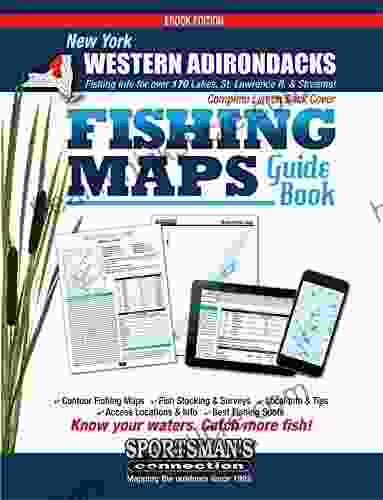Comprehensive Guide to Management Strategies in Athletic Training Education

4.5 out of 5
| Language | : | English |
| File size | : | 20904 KB |
| Text-to-Speech | : | Enabled |
| Enhanced typesetting | : | Enabled |
| Print length | : | 512 pages |
| Lending | : | Enabled |
| Screen Reader | : | Supported |
Athletic training is a rapidly growing field that requires professionals to have a strong foundation in management strategies. Management strategies are essential for athletic trainers to effectively lead and manage their teams, communicate with stakeholders, mitigate risks, and manage their finances.
This article provides a comprehensive overview of management strategies in athletic training education. It covers the following topics:
* Leadership * Communication * Risk management * Financial management
Leadership
Leadership is a critical component of management in athletic training. Athletic trainers must be able to lead their teams effectively to achieve their goals. There are many different leadership styles, but the most effective leaders are those who are able to motivate and inspire their teams while also setting clear goals and expectations.
Athletic trainers can develop their leadership skills through formal education, experience, and mentorship. Formal education can provide athletic trainers with the theoretical knowledge and skills needed to be effective leaders. Experience can help athletic trainers develop the practical skills needed to lead teams. Mentorship can provide athletic trainers with guidance and support from more experienced leaders.
Communication
Communication is another essential component of management in athletic training. Athletic trainers must be able to communicate effectively with their teams, stakeholders, and the public. Effective communication can help athletic trainers build strong relationships, resolve conflicts, and promote their programs.
Athletic trainers can develop their communication skills through formal education, experience, and mentorship. Formal education can provide athletic trainers with the theoretical knowledge and skills needed to be effective communicators. Experience can help athletic trainers develop the practical skills needed to communicate effectively in a variety of settings. Mentorship can provide athletic trainers with guidance and support from more experienced communicators.
Risk Management
Risk management is an important part of management in athletic training. Athletic trainers must be able to identify and mitigate risks in order to protect their athletes and their programs. Risk management can help athletic trainers prevent injuries, illnesses, and other accidents.
Athletic trainers can develop their risk management skills through formal education, experience, and mentorship. Formal education can provide athletic trainers with the theoretical knowledge and skills needed to be effective risk managers. Experience can help athletic trainers develop the practical skills needed to identify and mitigate risks. Mentorship can provide athletic trainers with guidance and support from more experienced risk managers.
Financial Management
Financial management is another important part of management in athletic training. Athletic trainers must be able to manage their finances effectively in order to ensure the success of their programs. Financial management can help athletic trainers track their expenses, budget for their programs, and make sound financial decisions.
Athletic trainers can develop their financial management skills through formal education, experience, and mentorship. Formal education can provide athletic trainers with the theoretical knowledge and skills needed to be effective financial managers. Experience can help athletic trainers develop the practical skills needed to manage their finances effectively. Mentorship can provide athletic trainers with guidance and support from more experienced financial managers.
Management strategies are essential for athletic trainers to effectively lead and manage their teams, communicate with stakeholders, mitigate risks, and manage their finances. Athletic trainers can develop their management skills through formal education, experience, and mentorship. By developing their management skills, athletic trainers can improve the quality of care they provide to their athletes and the success of their programs.
4.5 out of 5
| Language | : | English |
| File size | : | 20904 KB |
| Text-to-Speech | : | Enabled |
| Enhanced typesetting | : | Enabled |
| Print length | : | 512 pages |
| Lending | : | Enabled |
| Screen Reader | : | Supported |
Do you want to contribute by writing guest posts on this blog?
Please contact us and send us a resume of previous articles that you have written.
 Fiction
Fiction Non Fiction
Non Fiction Romance
Romance Mystery
Mystery Thriller
Thriller SciFi
SciFi Fantasy
Fantasy Horror
Horror Biography
Biography Selfhelp
Selfhelp Business
Business History
History Classics
Classics Poetry
Poetry Childrens
Childrens Young Adult
Young Adult Educational
Educational Cooking
Cooking Travel
Travel Lifestyle
Lifestyle Spirituality
Spirituality Health
Health Fitness
Fitness Technology
Technology Science
Science Arts
Arts Crafts
Crafts DIY
DIY Gardening
Gardening Petcare
Petcare Despina Meris
Despina Meris Cinda Williams Chima
Cinda Williams Chima Henry Cloud
Henry Cloud Monique Joiner Siedlak
Monique Joiner Siedlak Jorge Muniz
Jorge Muniz Valerie Gilpeer
Valerie Gilpeer Brian Boone
Brian Boone Lewis Carroll
Lewis Carroll Pure Calisthenics
Pure Calisthenics Joe Kelly
Joe Kelly Katy Milkman
Katy Milkman James Patterson
James Patterson Alan Watts
Alan Watts Mary Bergin
Mary Bergin Scott Graham
Scott Graham Jdmission Senior Consultants
Jdmission Senior Consultants Ryan Hall
Ryan Hall Giuseppe Mascoli
Giuseppe Mascoli Liz Clark
Liz Clark P Schreiber
P Schreiber Michael Reist
Michael Reist Stuart A Kauffman
Stuart A Kauffman Jim Cheney
Jim Cheney Allison Mcdonald Ace
Allison Mcdonald Ace Randy Olson
Randy Olson Peter Mark Adams
Peter Mark Adams Alicia F Lieberman
Alicia F Lieberman Kim Liggett
Kim Liggett Cate Stillman
Cate Stillman Perry Lefko
Perry Lefko Jennifer Waldburger
Jennifer Waldburger Holly Homer
Holly Homer Roy Clark
Roy Clark Allen Stroud
Allen Stroud Casi Mclean
Casi Mclean Douglas Whynott
Douglas Whynott Alison Aulakh
Alison Aulakh Josephine Perry
Josephine Perry Bobby Clampett
Bobby Clampett Rick Johnson
Rick Johnson Julie Morgenstern
Julie Morgenstern Allen Carr
Allen Carr Kate Clifford Larson
Kate Clifford Larson Novak Djokovic
Novak Djokovic Meredith L Jacobs
Meredith L Jacobs Tim Rappleye
Tim Rappleye Karen Wambach
Karen Wambach Konnie Wong
Konnie Wong Raychelle Cassada Lohmann
Raychelle Cassada Lohmann Alison Pearlman
Alison Pearlman Edmund G R Kraal
Edmund G R Kraal Dr Nadine Sinclair
Dr Nadine Sinclair George Buehler
George Buehler Jon S Bailey
Jon S Bailey William Stott
William Stott John Kavanagh
John Kavanagh Olajumoke Adenowo
Olajumoke Adenowo Frederick Mosteller
Frederick Mosteller Joseph Harkreader
Joseph Harkreader William W Dressler
William W Dressler Cy Tymony
Cy Tymony Tami Asars
Tami Asars Anna Leinberger
Anna Leinberger Travis Jeffery
Travis Jeffery Lynn Acton
Lynn Acton Jared Cohen
Jared Cohen Jason Durham
Jason Durham Mandi Hickman
Mandi Hickman Robert Taylor
Robert Taylor Mary Elizabeth O Brien
Mary Elizabeth O Brien Allison Williams
Allison Williams Bogdan Ivanov
Bogdan Ivanov Marianne Williamson
Marianne Williamson Wendelin Van Draanen
Wendelin Van Draanen Andrie De Vries
Andrie De Vries Aliza Kelly
Aliza Kelly Linda Greenlaw
Linda Greenlaw Meredith Russo
Meredith Russo Allison Dolan
Allison Dolan Dave Pelz
Dave Pelz Lynn Stafford Yilmaz
Lynn Stafford Yilmaz Brenda Gable
Brenda Gable Roy Macskimming
Roy Macskimming Lisa M Rose
Lisa M Rose Selene Yeager
Selene Yeager Sabatino Moscati
Sabatino Moscati Jack Smith
Jack Smith Joe Sparrow
Joe Sparrow Lennard Bickel
Lennard Bickel Daniel J Siegel
Daniel J Siegel Natasha Devon
Natasha Devon J R R Tolkien
J R R Tolkien Kate Mcmahon
Kate Mcmahon Eric Newby
Eric Newby Rene Almeling
Rene Almeling Alexander Clarke
Alexander Clarke Mark Beauregard
Mark Beauregard Sarah Grison
Sarah Grison Raymond Turner
Raymond Turner Anna Costaras
Anna Costaras Teri Moser Woo
Teri Moser Woo Bret Hart
Bret Hart Karen Murphy
Karen Murphy Dan Millman
Dan Millman Aly Raisman
Aly Raisman Mara Krechevsky
Mara Krechevsky Richard M Van Gaasbeek
Richard M Van Gaasbeek Grant Petersen
Grant Petersen Franz Kellermann
Franz Kellermann Meritxell Castells
Meritxell Castells Vincent Schilling
Vincent Schilling Kaitlyn Hill
Kaitlyn Hill Jeff Hawkins
Jeff Hawkins Nick Karas
Nick Karas Chris Lundgren
Chris Lundgren Todd Wilbur
Todd Wilbur Marc Bubbs
Marc Bubbs Kevin West
Kevin West Rebecca St James
Rebecca St James Don Miguel Ruiz
Don Miguel Ruiz Robin Stevenson
Robin Stevenson Eric Lemarque
Eric Lemarque Alison Palmer
Alison Palmer Theodore B Sauselein
Theodore B Sauselein Peter Hollins
Peter Hollins Linda Barrett Osborne
Linda Barrett Osborne Alison Scott Wright
Alison Scott Wright John Lloyd
John Lloyd Jason Padgett
Jason Padgett Sean Patrick
Sean Patrick Trae Dorn
Trae Dorn Leah Vanderveldt
Leah Vanderveldt Erica Abbett
Erica Abbett Marie Osmond
Marie Osmond Segun Adebajo
Segun Adebajo Allistair Mccaw
Allistair Mccaw Amy Saltzman
Amy Saltzman Grant S Lipman
Grant S Lipman Laerke Recht
Laerke Recht Hilda Jarman Muir
Hilda Jarman Muir Helen Macdonald
Helen Macdonald Jonathan St B T Evans
Jonathan St B T Evans Danica G Hays
Danica G Hays Elce Junior Lauriston
Elce Junior Lauriston John Macinnes
John Macinnes Dr Danielle Ward
Dr Danielle Ward Christian Asonye
Christian Asonye Kimberly Brown
Kimberly Brown Alison Gervais
Alison Gervais Douglas Nicholas
Douglas Nicholas Allan Kardec
Allan Kardec Roger Bannister
Roger Bannister C Calvin Jones
C Calvin Jones Janet E Wall
Janet E Wall Jeff Brent
Jeff Brent Charlotte Runcie
Charlotte Runcie Kara Lawrence
Kara Lawrence Eric Naguski
Eric Naguski Emily Parke Chase
Emily Parke Chase Eli Saslow
Eli Saslow Mike Zimmerman
Mike Zimmerman Chris Cannon
Chris Cannon Kim Heacox
Kim Heacox Joanna Foley Rd
Joanna Foley Rd Carlo Ancelotti
Carlo Ancelotti Tim Roughgarden
Tim Roughgarden Kenneth Igiri
Kenneth Igiri Joshua Elliot James
Joshua Elliot James Mourad Boufadene
Mourad Boufadene Bryan Goodwin
Bryan Goodwin Grace Lindsay
Grace Lindsay Anil Seth
Anil Seth Matthew Mccoy
Matthew Mccoy Allen Morris Jones
Allen Morris Jones Marlin M Mackenzie
Marlin M Mackenzie Dennis Overbye
Dennis Overbye Philip Gosse
Philip Gosse Michael Fullan
Michael Fullan Suzanne O Sullivan
Suzanne O Sullivan Judith Rich Harris
Judith Rich Harris Paul D Brinkman
Paul D Brinkman Jeff Gordon
Jeff Gordon David Eagleman
David Eagleman Lsatmax Lsat Prep
Lsatmax Lsat Prep Shawn D Madden
Shawn D Madden Bill Varney Jr
Bill Varney Jr Lexie Scott
Lexie Scott Greg Moran
Greg Moran Frederick Courteney Selous
Frederick Courteney Selous Chris Fox
Chris Fox Alivia Stephens
Alivia Stephens Greg Henry
Greg Henry Michael Shermer
Michael Shermer Sid Roth
Sid Roth Scott Smith
Scott Smith Richard H Thaler
Richard H Thaler Robbin Gregory
Robbin Gregory Deborah Ann Davis
Deborah Ann Davis George M Johnson
George M Johnson Molly Forbes
Molly Forbes John Bargh Ph D
John Bargh Ph D Robin Riley
Robin Riley Victor Canning
Victor Canning Chris Chambers
Chris Chambers Joe Kenn
Joe Kenn Dan Miller
Dan Miller Robert Green
Robert Green Brian Treanor
Brian Treanor Lynn Rush
Lynn Rush Shobi Nolan
Shobi Nolan Eddie Guerrero
Eddie Guerrero Tom Babin
Tom Babin Allen G Taylor
Allen G Taylor Michelle Nijhuis
Michelle Nijhuis Kenji Tokitsu
Kenji Tokitsu Jen Torborg
Jen Torborg Debi Pearl
Debi Pearl Gerd Gigerenzer
Gerd Gigerenzer Charles Conn
Charles Conn Mark Dice
Mark Dice Rob Shelsky
Rob Shelsky Brian Lopes
Brian Lopes Daniel J Levitin
Daniel J Levitin Brenda Boyd
Brenda Boyd Jim Mancuso
Jim Mancuso Maria Rickert Hong
Maria Rickert Hong Roy Shepard
Roy Shepard Eugen Herrigel
Eugen Herrigel Randy Russell
Randy Russell Carla Mooney
Carla Mooney Allison Norfolk
Allison Norfolk Rowena Murray
Rowena Murray Ethem Mining
Ethem Mining Daniel Stewart
Daniel Stewart Alistair Brownlee
Alistair Brownlee Carl Paoli
Carl Paoli Alisha J Brown
Alisha J Brown Paul Schullery
Paul Schullery Michele Stanten
Michele Stanten Michaelbrent Collings
Michaelbrent Collings Julie Currin
Julie Currin Liz Evers
Liz Evers Pass Your Class
Pass Your Class Joseph Fort Newton
Joseph Fort Newton Allison Arevalo
Allison Arevalo Jim Downs
Jim Downs Giancarlo Lemmi
Giancarlo Lemmi Matthieu Auzanneau
Matthieu Auzanneau Rex L Forehand
Rex L Forehand Ian Westermann
Ian Westermann Stuart Holmes Coleman
Stuart Holmes Coleman Judy Converse
Judy Converse Leonard Shlain
Leonard Shlain Allen J Christenson
Allen J Christenson Walter Isaacson
Walter Isaacson Grace E Stewart
Grace E Stewart Allen M Hornblum
Allen M Hornblum Rodney Ford
Rodney Ford Rachel Caine
Rachel Caine John Shewey
John Shewey Allan Trevor
Allan Trevor Matt Hart
Matt Hart Alistair Cooke
Alistair Cooke Debra L Martin
Debra L Martin Jennifer E Smith
Jennifer E Smith Naomi Kokoricha
Naomi Kokoricha Milt Rosko
Milt Rosko Lisa Marshall
Lisa Marshall Carolyn Shearlock
Carolyn Shearlock C S Wilde
C S Wilde Jonathan E Steinhart
Jonathan E Steinhart Susan Neiman
Susan Neiman Elliot Aronson
Elliot Aronson Kristine Hudson
Kristine Hudson Beth Cavenaugh
Beth Cavenaugh Mark F Sohn
Mark F Sohn Clive Cussler
Clive Cussler Aubrey Gordon
Aubrey Gordon John Bul Dau
John Bul Dau Sarah P Morris
Sarah P Morris Gail Steketee
Gail Steketee Winston Churchill
Winston Churchill Alister E Mcgrath
Alister E Mcgrath David Hurst Thomas
David Hurst Thomas David M Killoran
David M Killoran Phil Hornshaw
Phil Hornshaw John C Lennox
John C Lennox Diana Korte
Diana Korte Kathleen Bachynski
Kathleen Bachynski Chris Mulder
Chris Mulder John Novosel Jr
John Novosel Jr Catherine Gildiner
Catherine Gildiner Tom Kelly
Tom Kelly Pasco Valana
Pasco Valana Jacqueline H Wolf
Jacqueline H Wolf Bill Horn
Bill Horn Jenara Nerenberg
Jenara Nerenberg Kelsey Banfield
Kelsey Banfield Julie Schwietert
Julie Schwietert Andrew Kastor
Andrew Kastor Gregory Cochran
Gregory Cochran John Michael Kelly
John Michael Kelly Signe Pike
Signe Pike Allen Dulles
Allen Dulles N B Hankes
N B Hankes Apryl Baker
Apryl Baker Sportsman S Connection
Sportsman S Connection Allison Schrager
Allison Schrager Robert Penn Warren
Robert Penn Warren Joe Vasicek
Joe Vasicek Kate Wood
Kate Wood Alistair Higham
Alistair Higham Ann C Logue
Ann C Logue Paul S Auerbach
Paul S Auerbach Nick Riley
Nick Riley Emma Shelford
Emma Shelford Allan G Bluman
Allan G Bluman Maria Hannay
Maria Hannay Richard Kaczynski
Richard Kaczynski Jennifer Louden
Jennifer Louden D C Fergerson
D C Fergerson Dennis Georgatos
Dennis Georgatos Marc Vachon
Marc Vachon Tami Overhauser
Tami Overhauser Allison Alexy
Allison Alexy Ed Robinson
Ed Robinson Paul Green
Paul Green S Allen Counter
S Allen Counter Linda S Jones
Linda S Jones Suzanne Alderson
Suzanne Alderson Carlos Castaneda
Carlos Castaneda The School Of Life
The School Of Life Jimena Canales
Jimena Canales Ryan Spaeder
Ryan Spaeder Jeffrey E Young
Jeffrey E Young Tim Baker
Tim Baker Annabeth Headrick
Annabeth Headrick Dr Fiona Mcpherson
Dr Fiona Mcpherson Robert S Witte
Robert S Witte Kwame Onwuachi
Kwame Onwuachi Saint Teresa Of Avila
Saint Teresa Of Avila Stephen E Flowers
Stephen E Flowers Rhonda Huettenmueller
Rhonda Huettenmueller Jim Bell
Jim Bell William A Haviland
William A Haviland Linda Martella Whitsett
Linda Martella Whitsett Edwin Amenta
Edwin Amenta Allison Tyson
Allison Tyson Tim Hodkinson
Tim Hodkinson Susan Ware
Susan Ware William B Helmreich
William B Helmreich Karen Blumenthal
Karen Blumenthal Susan Kuklin
Susan Kuklin Ashley D Kendall
Ashley D Kendall Ronald E Mickens
Ronald E Mickens Bright Summaries
Bright Summaries Ron Merly
Ron Merly Allen N Mendler
Allen N Mendler Peggy L Chinn
Peggy L Chinn Andrew Benfield
Andrew Benfield Bill Hendricks
Bill Hendricks Iain Gately
Iain Gately Peter Van Der Linden
Peter Van Der Linden Y R Davis
Y R Davis Christina Hoff Sommers
Christina Hoff Sommers Vitalis I Valentine
Vitalis I Valentine Allen Everett
Allen Everett Kota Nozomi
Kota Nozomi James Kipling
James Kipling Sam Jefferson
Sam Jefferson Allan Phillips
Allan Phillips Mark Kistler
Mark Kistler Joel Thomas Chopp
Joel Thomas Chopp David Hancock
David Hancock Stephen Haddelsey
Stephen Haddelsey Alison Lighthall Miller
Alison Lighthall Miller Norrinda Brown Hayat
Norrinda Brown Hayat Carrot Quinn
Carrot Quinn Laura Randall
Laura Randall Frank Christianson
Frank Christianson J Richard Gott
J Richard Gott Nikki Solano
Nikki Solano Dennis Jarecke
Dennis Jarecke Petr Zima
Petr Zima Mike Wallace
Mike Wallace Alicia Jasinska
Alicia Jasinska Kevin Leman
Kevin Leman Allen R Angel
Allen R Angel Neely Spence Gracey
Neely Spence Gracey Courtney Summers
Courtney Summers Gary Leland
Gary Leland Toru Toba
Toru Toba Suzanne Nottingham
Suzanne Nottingham James F Mckenzie
James F Mckenzie Vivian Gornick
Vivian Gornick Gary Sizer
Gary Sizer Neil Hayes
Neil Hayes Godfrey Higgins
Godfrey Higgins Allan House
Allan House Jean Jacques Chevron
Jean Jacques Chevron Alicia Thomas Woolf
Alicia Thomas Woolf Ben Greenfield
Ben Greenfield Nevin Martell
Nevin Martell Maria Thompson Daviess
Maria Thompson Daviess The Editors Of Outside Magazine
The Editors Of Outside Magazine Claude Levi Strauss
Claude Levi Strauss James Fallows
James Fallows Pottermore Publishing
Pottermore Publishing Frank Delaney
Frank Delaney John Hughes
John Hughes Allan Hall
Allan Hall Somaiya Daud
Somaiya Daud Carla Simpson
Carla Simpson Eickhel Mendoza
Eickhel Mendoza Sylvia Larsen
Sylvia Larsen P J Richards
P J Richards Dan Abrahams
Dan Abrahams Mian Majid Ali Afzal
Mian Majid Ali Afzal Jim C Hines
Jim C Hines Amby Burfoot
Amby Burfoot Paul J Kosmin
Paul J Kosmin Myrna Blyth
Myrna Blyth Jim Cobb
Jim Cobb Sharon Weinberger
Sharon Weinberger Emily Thiede
Emily Thiede L H Nicole
L H Nicole Barbara De Angelis
Barbara De Angelis Alina A Von Davier
Alina A Von Davier Christopher Bruhn
Christopher Bruhn Marti Olsen Laney
Marti Olsen Laney Geoff Salmon
Geoff Salmon Etienne Noumen
Etienne Noumen Stephen R Covey
Stephen R Covey W Edwards Deming
W Edwards Deming Felix Marks
Felix Marks Judith Mckay
Judith Mckay Bruce Tremper
Bruce Tremper Dr Ron M Horner
Dr Ron M Horner Maurice Isserman
Maurice Isserman Deborah Macnamara Phd
Deborah Macnamara Phd Edmund Richardson
Edmund Richardson Alexandra Amor
Alexandra Amor Karen Bonnell
Karen Bonnell 10th Edition Kindle Edition
10th Edition Kindle Edition Lydia Sherrer
Lydia Sherrer Gavin Fairbairn
Gavin Fairbairn Tiger Woods
Tiger Woods Jim Rahtz
Jim Rahtz Sheena Byrom
Sheena Byrom Ronald Hutton
Ronald Hutton Justin J Exner
Justin J Exner Priya Ardis
Priya Ardis Steven J Burton
Steven J Burton Charles J Robinson
Charles J Robinson James Sieckmann
James Sieckmann Tress Bowen
Tress Bowen Robert Kiltz
Robert Kiltz Jeff Burlingame
Jeff Burlingame Brett Lee Scott
Brett Lee Scott Rex Allen Jones Ii
Rex Allen Jones Ii Matthew Syed
Matthew Syed Thomas R Verny
Thomas R Verny Steve J Martin
Steve J Martin Annie F Downs
Annie F Downs James Ferguson
James Ferguson Pamela Douglas
Pamela Douglas Glenn Tinnin
Glenn Tinnin Patrick Stewart
Patrick Stewart Harald B Teicher
Harald B Teicher Jonathan Moeller
Jonathan Moeller Jeremy Evans
Jeremy Evans Jay Blahnik
Jay Blahnik Kaylee Cole
Kaylee Cole Itzik Ben Gan
Itzik Ben Gan Arianna Brooks
Arianna Brooks Muthukumaran Mani
Muthukumaran Mani Amy Wenzel
Amy Wenzel Ken Cohen
Ken Cohen Noor Ain
Noor Ain Don Harris
Don Harris Simone Milasas
Simone Milasas Joel S Owen
Joel S Owen The Dark Lords
The Dark Lords Chris Lear
Chris Lear Milton Gussow
Milton Gussow Greg Strandberg
Greg Strandberg Allen O Bannon
Allen O Bannon Lionel Cruzille
Lionel Cruzille W E Fairbairn
W E Fairbairn Tom Daley
Tom Daley Mary Quinlan Mcgrath
Mary Quinlan Mcgrath Arthur Aughey
Arthur Aughey Daniel Mendelsohn
Daniel Mendelsohn Chip Coffey
Chip Coffey Tom Watson
Tom Watson Joosr
Joosr Robert M Sapolsky
Robert M Sapolsky Linda A Curtis
Linda A Curtis Fluent In Korean
Fluent In Korean David F Anderson
David F Anderson
Light bulbAdvertise smarter! Our strategic ad space ensures maximum exposure. Reserve your spot today!

 Curtis StewartThe Modern Jewish Mom's Guide to Shabbat: Traditions, Activities, and Recipes
Curtis StewartThe Modern Jewish Mom's Guide to Shabbat: Traditions, Activities, and Recipes Clayton HayesFollow ·10.9k
Clayton HayesFollow ·10.9k Tennessee WilliamsFollow ·6.3k
Tennessee WilliamsFollow ·6.3k Darnell MitchellFollow ·6.5k
Darnell MitchellFollow ·6.5k William FaulknerFollow ·6.5k
William FaulknerFollow ·6.5k Jaime MitchellFollow ·19.3k
Jaime MitchellFollow ·19.3k Jacob HayesFollow ·6.2k
Jacob HayesFollow ·6.2k Chandler WardFollow ·14.1k
Chandler WardFollow ·14.1k Anton FosterFollow ·14.2k
Anton FosterFollow ·14.2k

 Dominic Simmons
Dominic SimmonsFierce Attachments: A Memoir by Vivian Gornick - A...
Vivian Gornick's Fierce Attachments is a...

 Edison Mitchell
Edison MitchellPrimer for America's Favorite Wilderness: A Comprehensive...
In the vast...

 Jan Mitchell
Jan MitchellIntroduction to Probability: A Comprehensive Guide for...
Probability is a crucial branch of...

 Chuck Mitchell
Chuck Mitchell100,000 Mile Journey Into the Heart of America
In 2016, I embarked on a...

 Eddie Bell
Eddie BellHow Schools Around the World Are Inspiring Greatness One...
Education is the key...

 Quentin Powell
Quentin PowellJourney into the Heart of Alaska: Exploring the Majestic...
Alaska, the largest...
4.5 out of 5
| Language | : | English |
| File size | : | 20904 KB |
| Text-to-Speech | : | Enabled |
| Enhanced typesetting | : | Enabled |
| Print length | : | 512 pages |
| Lending | : | Enabled |
| Screen Reader | : | Supported |










